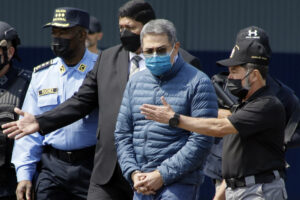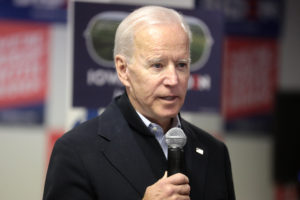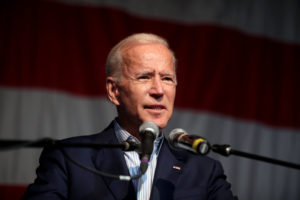Time for Hillary to Admit Error — and Act
Sen. Clinton can best recover from her vacillation on Iraq by demanding that Bush use diplomacy with Iran.Easy victories can be dangerous to the politicians who achieve them, a lesson that Hillary Rodham Clinton may be learning as she seeks her party’s presidential nomination. Coasting to re-election last fall has done her as much harm as good — because until now, she was never forced to confront her own equivocal positioning on Iraq.
Neither the weak antiwar candidate whom she ignored in the Senate primary last year nor the cloddish conservative Republican whom she trounced in the general election could test her. While the national consensus against the war hardened, she hesitated. If her opposition had been more effective, she would be better off now.
Clinton complains that opponents who accuse her of vacillation are distorting her record. She says that her enthusiasm for invading Iraq has been exaggerated, but she still tries to show toughness by refusing to admit error. She says that the president should bring the troops home before he leaves office in January 2009, without acknowledging that she had previously opposed any date certain for withdrawal.
Today, she says that she wouldn’t have voted to authorize the use of force had she known in September 2002 what we all know now about the mythical arsenal of mass destruction. Two years ago, she said that she felt “no regrets” about casting that same vote. And yet she remains reluctant to confess — as former Sen. John Edwards finally did concerning his vote — that she was wrong.
In fairness, it is true that as long ago as March 2003 Clinton voiced her preference for “coercive inspection” rather than preemptive war. When the moment of the invasion arrived, she released a supportive statement that mentioned a forlorn yearning for “more international support.”
None of her murmured dissents, however, approached the fervor of the floor speech she made this month. “If I had been president in October of 2002, I would have never asked for authority to divert our attention from Afghanistan to Iraq,” she declared, “and I certainly would never have started this war.”
Like most Americans, Clinton has changed her mind. Unfortunately for her, Sen. Barack Obama didn’t have to change his mind. As her campaign rival, he is understandably emphasizing that fact. “Even at the time, it was possible to make judgments that this would not work out well,” he noted recently.
Then again, at the time very few people cared what Obama said about the war, because he was an Illinois state senator and only an aspiring contender for the U.S. Senate. He didn’t have to cast an actual vote to authorize the use of military force. He cannot now suggest that anyone who voted for that resolution is unfit to be president. In 2004, after all, he delivered a stirring speech seconding the presidential nomination of Sen. John Kerry, who also voted to authorize the war — and who failed to explain that decision adequately during his stumbling campaign.
The most convincing explanation is simple and happens to be true. When the president asked for the authorization, he told America he would use that power to “keep the peace.” He said the authorization would force Saddam Hussein to permit the U.N. weapons inspectors to return to Iraq and fulfill the pertinent resolutions. He promised that he would invade only as “a last resort.”
Those false promises persuaded Clinton to support the resolution. She endorsed the potential use of force because she wanted the inspectors to return to Iraq — as she has said many times. She then watched President Bush terminate the inspections unilaterally, violating his pledge to seek a peaceful resolution. Trusting him was a mistake that she should no longer be unwilling to admit.
She would have fewer difficulties as a presidential candidate if she had effectively addressed that error last year. Instead, she listened to the same circle of strategists who stupidly warned her not to oppose the war too vocally, lest she appear “weak.”
Is Clinton strong enough to reject that kind of bad advice in the future?
She might begin to demonstrate that strength not only by opposing the escalation of the war effort in Iraq but by speaking out against the provocation of a military conflict with Iran. She should lead the Democratic Party in demanding that the president reverse course and accept the recommendations of the Iraq Study Group, including diplomatic engagement with Iran and Syria.
She can play an important role in preventing another foreign-policy disaster. She can prove that experience matters — by showing what she has learned from hers.
Your support matters…Independent journalism is under threat and overshadowed by heavily funded mainstream media.
You can help level the playing field. Become a member.
Your tax-deductible contribution keeps us digging beneath the headlines to give you thought-provoking, investigative reporting and analysis that unearths what's really happening- without compromise.
Give today to support our courageous, independent journalists.






You need to be a supporter to comment.
There are currently no responses to this article.
Be the first to respond.